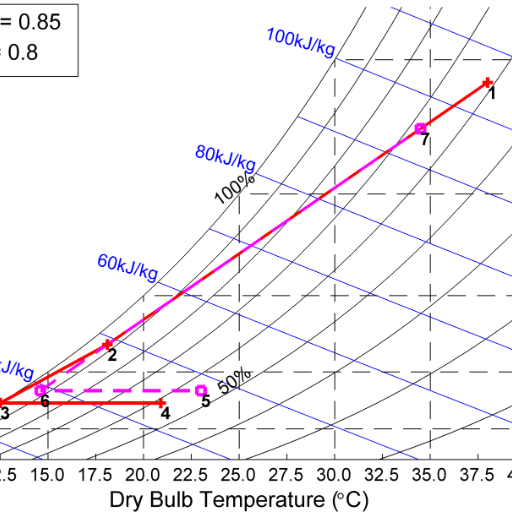Graduate Level Physics GPT-Graduate Level Physics Support
AI-powered graduate-level physics assistance.
Explain Einstein's equation in general relativity.
How does quantum field theory describe particle interactions?
Describe the principles of solid state physics.
What are the key concepts in statistical mechanics?
Related Tools
Load More
Physics and Mathematics Graduate-Level Professor
Assisting in learning and research, finding positions and events, writing proposals and thesis, and more. Equipped with textbooks, web search, symbolic calculator, coding capabilities and graphic illustrator.

Undergrad Physics GPT
I'm an AI tutor specializing in undergraduate physics, here to explain concepts and solve problems.

IB Physics Tutor
Your personal tutor to master IB Physics

Thermodynamics (Study GPT)
Thermodynamics GPT to help study introductory Thermodynamics topics.

Physics GPT
The best AI physics learning tool out here!
Professor Phy.
Your Personalized Physic Tutor. Upload an Image or Type Your Question to Begin. Create an account at nerd-notes.com to supercharge your learning with Phy.
20.0 / 5 (200 votes)
Introduction to Graduate Level Physics GPT
Graduate Level Physics GPT is a specialized artificial intelligence designed to assist users in understanding and solving advanced physics problems at the graduate level. It is based on the GPT-4 architecture, which allows it to comprehend and generate human-like text. This model has been fine-tuned with extensive knowledge from key physics textbooks and other scholarly resources, making it a valuable tool for tackling complex topics in various branches of physics such as quantum mechanics, general relativity, statistical physics, and particle physics. For example, if a user needs help understanding the derivation of the Schrödinger equation in quantum mechanics, Graduate Level Physics GPT can provide a step-by-step explanation, including the mathematical background and physical implications.

Main Functions of Graduate Level Physics GPT
Concept Explanation
Example
Explaining the concept of spontaneous symmetry breaking in quantum field theory.
Scenario
A user studying quantum field theory might struggle with the concept of spontaneous symmetry breaking. Graduate Level Physics GPT can break down the idea into understandable segments, provide examples from particle physics, and relate it to phenomena like the Higgs mechanism.
Problem Solving
Example
Solving a complex integral in statistical mechanics.
Scenario
A user working on a problem set in statistical mechanics might encounter a challenging integral. Graduate Level Physics GPT can assist by guiding through the integral's solution, providing tips on methods like contour integration or using specific theorems relevant to the problem.
Research Assistance
Example
Identifying key papers on the application of Lie algebras in particle physics.
Scenario
A graduate student preparing a thesis on particle physics might need to find seminal papers on Lie algebras. Graduate Level Physics GPT can suggest important research papers, summarize their contributions, and explain how they relate to the student's work.
Ideal Users of Graduate Level Physics GPT
Graduate Students in Physics
Graduate students will benefit from using this GPT for understanding complex concepts, solving advanced problems, and getting assistance with research tasks. The detailed explanations and comprehensive problem-solving capabilities are tailored to meet the rigorous demands of graduate-level coursework and research.

How to Use Graduate Level Physics GPT
Visit aichatonline.org for a free trial without login, also no need for ChatGPT Plus.
Access the platform by visiting the website. No need for a subscription or login to start using the tool.
Prepare your questions
Gather detailed and specific questions related to graduate-level physics topics, ensuring they are clear and precise.
Utilize the knowledge base
Refer to key physics textbooks and academic resources available in the system to formulate your questions.
Ask detailed queries
Input your questions into the GPT interface, making sure to include context and any specific areas of focus.
Review and apply responses
Analyze the provided answers, cross-referencing with your existing knowledge, and apply them to your academic or research work.
Try other advanced and practical GPTs
Texy
AI-powered writing for every need.

Rock My Profile
AI-driven LinkedIn Profile Enhancer

Li Hua
AI-powered tool for mastering English vocabulary.

VC Associate
AI-powered insights for venture capitalists

Frank's Content Machine La Fiera
AI-driven content creation made simple

中文论文润色工具
AI-Powered Enhancement for Academic Papers

Maite.ai - Copiloto para profesionales jurídicos
AI-powered legal assistance for professionals
万物拆解三行代码大师
Summarize any concept in three lines.
Grafika artykułu
AI-Powered Image Creation for Articles.

Academic Paper Analyzer
AI-powered insights for academic papers.

Mr Writer
AI-Powered Professional Writing for Job Success.
Mr. Black Consultor Empresarial
AI-powered consulting for business success.

- Research
- Problem Solving
- Exam Preparation
- Concept Clarification
- Thesis Support
Graduate Level Physics GPT Q&A
What topics can Graduate Level Physics GPT assist with?
It covers a wide range of subjects including solid state physics, statistical physics, quantum field theory, modern quantum mechanics, particle physics, classical electrodynamics, and general relativity.
How accurate are the responses from Graduate Level Physics GPT?
The responses are based on key textbooks and academic resources, ensuring high accuracy and reliability for graduate-level inquiries.
Can Graduate Level Physics GPT help with problem-solving?
Yes, it can assist with solving complex physics problems by providing step-by-step explanations and referencing relevant theories and formulas.
Is it suitable for academic writing?
Absolutely. It can aid in drafting research papers, theses, and other academic documents by providing detailed insights and references from authoritative sources.
How can I maximize the effectiveness of using this tool?
To get the best results, ask specific, detailed questions, and provide context or background information related to your query.